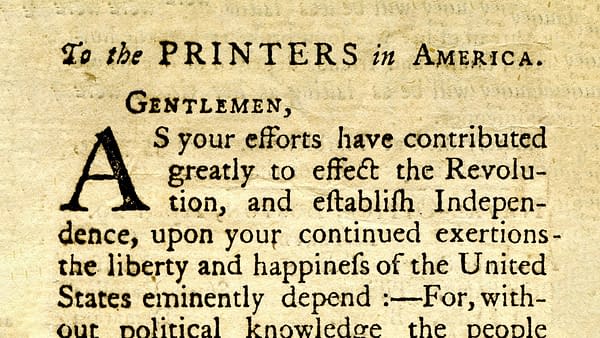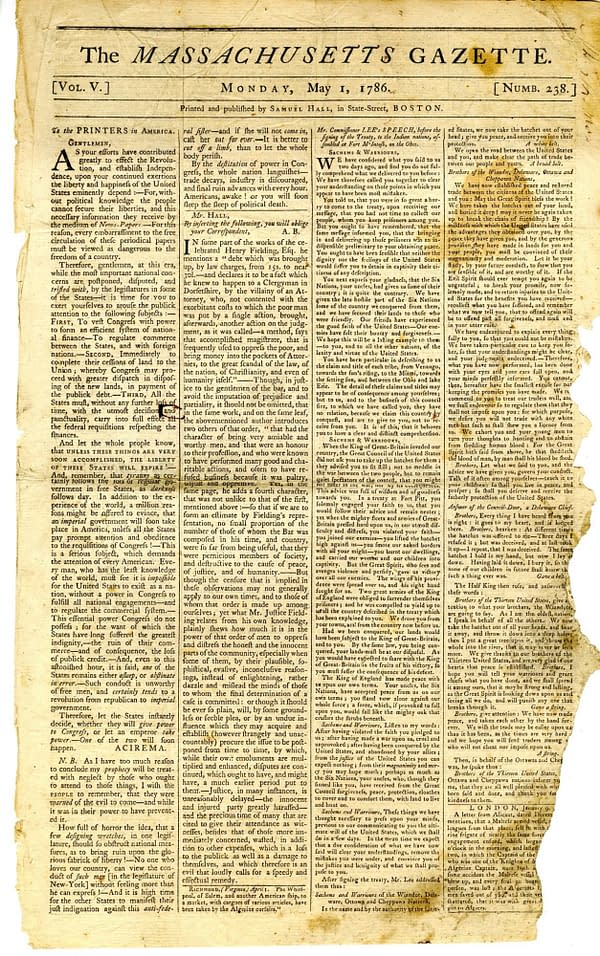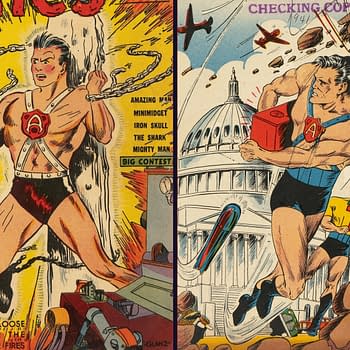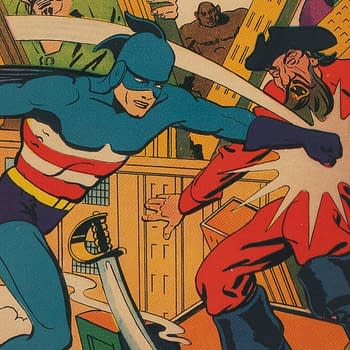Posted in: Comics, Vintage Paper | Tagged: massachusetts gazette, samuel hall, the issue
THE ISSUE: Democracy Dies in Darkness, 1786
A warning about safeguarding the free press from printer Samuel Hall in 1786 reads as an earlier version of "Democracy Dies in Darkness".
In 1786, due to the after-effects of the Revolutionary War, a struggling economy, and a rudimentary financial system in the young new country, many farmers and other citizens of Massachusetts were near financial ruin. Taxes were levied by the state of Massachusetts, which simply could not be paid, and authorities were making foreclosures and arrests as a result. An uprising began that August in western Massachusetts as farmers took up arms after peaceful means of resolution failed. This rebellion became known for one of its leaders, Daniel Shays, who was a veteran of the Revolutionary War. It is in this context that freedom of the press also became a subject of heated debate. One of the taxes enacted in Massachusetts in 1785 was the state stamp act tax on newspapers. Considering the apparent effects of other taxes in the state, Newspaper editors correctly perceived this tax as a threat to freedom of the press, comparing it to the more infamous Stamp Act of 1765. Against this backdrop of chaos, this May 1, 1786 issue of The Massachusetts Gazette published this persuasive explanation of freedom of the press, addressed to the printers of America. It reads as an earlier version of the more recent "Democracy Dies in Darkness."

The Issue is a regular column about vintage comics and other vintage periodicals from throughout world history. The idea behind The Issue is simple: for each post, I'll choose something from my collection and talk about what's going on in it, and discuss the publishers and creators behind it. And essentially, I'm just going to end up stepping through comics history one issue at a time. There is only one rule in The Issue: No recent stuff. Everything will be from before 1940, and most of it will be from before 1920.
To my knowledge, Massachusetts Gazette editor Samuel Hall's eloquent defense of freedom of the press in 1786 has not been republished since that day, before now. His words here seem to have been lost to history, and I haven't run across any reference to this text anywhere at all. I think that's worth fixing. Hall himself was the first printer to operate in Salem. He is remembered as a patriot and a man of diligence and principle. This three-part deep dive on Hall is worth your time.
But beyond this, consider: the Constitution had not yet been written. The United States existed under the Articles of Confederation, a "firm league of friendship," which was not all that much more than an agreement between the states to help each other and figure out the rest as we went along. Thomas Jefferson's famous freedom of the press quote is from a private letter he had sent that January: "Our liberty depends on the freedom of the press, and that cannot be limited without being lost."
Samuel Hall takes the concept behind that line and runs with it, publicly and forcefully. Shays' Rebellion helped shape the many debates about the framework of the federal government heading into the Constitutional Convention in 1787.
Democracy Dies in Darkness, 1786
To the PRINTERS in America,
Gentlemen,
As your efforts have contributed greatly to effect the Revolution, and establish Independence, upon your continued exertions the liberty and happiness of the United States eminently depends — For, without political knowledge the people cannot secure their liberties, an this necessary information they receive by the medium of newspapers — For this reason, every embarrassment to the free circulation of these periodical papers must be viewed as dangerous to the freedom of the country.
He goes on to mention other necessary aspects of securing democracy under our system of government, all of which would soon become matters of wider discussion over the next year leading up to the Constitutional Convention in 1787. And still later, an even more powerful warning:
Unless these things are very soon accomplished, the liberty of these of these states will expire! — and, remember, that tyranny as certainly follows the lots of regular government in free States, as darkness follows day.
Hall concludes with a final warning and a prediction:
Therefore, let the States instantly decide, whether they will give power to Congress, or let an emperor take power — One of the two will soon happen.
Hall's fears were well-founded. In 1798, the Federalists pushed through the Alien and Sedition Acts, which gave the government broad powers to kick people out of the country, made criticizing the government illegal, and fined and imprisoned newspaper publishers under a broad range of pretexts. Fortunately, that was the beginning of the end of the Federalists, whose brief history is far murkier than is well understood. The Anti-Rent Wars, for example, are an essential and little-remembered chapter of American history. And after that astonishing saga concluded, New York State's economy — and its printing and publishing ecosystem — exploded.
Then came the Beadle family, Benjamin Day, Park Benjamin, and the foundational New York publishers who shaped the course of both news and fiction in America. Samuel Hall's warning that Democracy Dies in Darkness, among the voices of many other newspaper editors of his day, had helped to ensure the future of a free press.
















